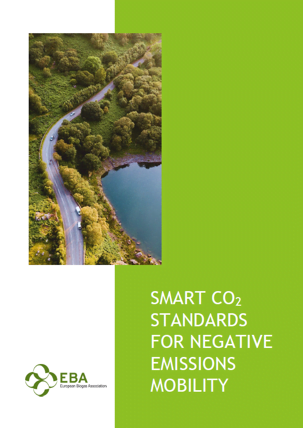Smart CO2 standards for negative emissions mobility

This paper includes three key recommendations to ensure the deployment of biomethane in transport and consequently achieve a fast, cost effective shift to carbon neutral mobility in Europe by 2050.
To achieve a climate-neutral EU by 2050 and the intermediate target of at least 55% net reduction in greenhouse gas emissions by 2030, the Commission is preparing a revision of the CO2 emission performance standards for new passenger cars and vans as part of the ‘Fit for 55%’ package. National projections indicate that by 2030, greenhouse gas (GHG) emissions from transport will decrease slightly but will nevertheless remain higher than 1990 levels. If these trends continue, the transport sector will fail to contribute to the reduction in emissions which is required in order to meet EU targets. To ensure the full decarbonisation of the transport sector, Europe needs to couple electrification with the deployment of all alternative fuels and technologies; the current standards, however, are placing obstacles in the way of a fast, cost effective shift to carbon neutral mobility in Europe.
Biomethane, which is the upgraded form of biogas, can be used as a renewable fuel, helping us achieve zero or even negative levels of CO2 emissions. It also enables the development of local circular economies because it can be generated using locally-produced organic residues. Additionally, digestate, a nutrient-rich by-product obtained during the production of this renewable fuel, can be used as biofertiliser to nurture our soils. Biomethane is available right here and now, across Europe, and its production levels can be easily increased to ensure ample future supply.
The need for further action to reduce emissions in the transport sector must be addressed without delay. The development of green electric mobility is advancing but this alone will not deliver the aimed for and much needed decarbonisation in time and cannot cover all areas of transport. In addition, as confirmed by the International Energy Agency (IEA), ‘the sustainability of electrification depends on broad decarbonisation of the power sector to actually reduce emissions at the system level’1. The use of other alternative green fuels alongside green electric mobility can speed up transport decarbonisation in the coming years and make sure the socio-economic benefits of this transition remain in the EU, including by supporting the development of a resilient car industry. Biomethane is a readily available and scalable resource that has an important role to play in ensuring that emissions reduction goals are met.

